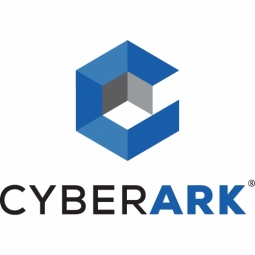Customer Company Size
Large Corporate
Region
- America
Country
- United States
Product
- Enterprise Password Vault
Tech Stack
- FIPS 140-2 validated cryptography
- AES-256 encryption
- LDAP authentication
Implementation Scale
- Enterprise-wide Deployment
Impact Metrics
- Cost Savings
- Customer Satisfaction
- Productivity Improvements
- Digital Expertise
Technology Category
- Cybersecurity & Privacy - Identity & Authentication Management
- Cybersecurity & Privacy - Security Compliance
Applicable Industries
- Healthcare & Hospitals
Applicable Functions
- Business Operation
Services
- System Integration
- Training
About The Customer
Boston Children’s Hospital, located in Boston, MA, is one of the most highly regarded pediatric centers in the country. The hospital offers a comprehensive range of health care services for children from birth through 21 years of age. With an annual revenue of $7,500,000 and over 9,430 employees, the hospital is dedicated to providing world-class medical care, conducting sophisticated research, and offering high-level teaching and training. The hospital’s IT department has created state-of-the-art work and patient care environments to support the evolution and practice of advanced pediatric care. The hospital is committed to ensuring the security and privacy of its sensitive data, particularly the privileged accounts and administrator passwords that allow access to powerful systems within the hospital.
The Challenge
As one of the largest pediatric medical centers in the United States, Boston Children’s Hospital offers a complete range of health care services for children from birth through 21 years of age. To support this world-class medical center, the hospital’s IT department has created state-of-the-art work and patient care environments to support the evolution and practice of the world’s most advanced and compassionate pediatric care, most sophisticated research, and high-level teaching and training. Like many large organizations, Boston Children’s Hospital needed to find a way to automatically administer and protect the most powerful identities in the company – the privileged accounts and administrator passwords. They allow access to a wealth of sensitive data and powerful systems within the hospital and must be managed very carefully. Sharing administrator privileges or allowing people to jot down passwords on sticky notes was simply unacceptable. The hospital wanted a way to not only protect the identities against unauthorized use, but streamline the process of issuing and revoking special privileges and rights. Previously, it was difficult to keep track of not only who had been issued a privileged password, but it was impossible to determine who was using them, when and what they were accessing. In an IT environment involving children’s patient information, it was critical to be able to have greater visibility into the use of powerful system accounts.
The Solution
In 2005, Boston Children’s Hospital evaluated privileged user management solutions and selected the Enterprise Password Vault (EPV) from CyberArk. This application enables the organization to secure, manage, automatically change, and log all activities associated with privileged accounts, such as administrator on a Windows server, Root on a UNIX server, Cisco Enable on a Cisco device, and embedded passwords found in applications and scripts. The EPV creates a central point for storing, accessing, and maintaining administrative accounts of all kinds (e.g., passwords, keys, applications), while creating a detailed audit trail of all privileged activities, including requests, accesses, retrievals, policy application, and reset processes. Today, more than 75 members of the IT staff use the EPV to provision privileged identities, primarily for use by system administrators and help desk staff needing access to workstation passwords that support various areas of the facility. The process is simple. IT professionals simply log into a web client and use a single console to request, access, and manage these identities.
Operational Impact
Quantitative Benefit

Case Study missing?
Start adding your own!
Register with your work email and create a new case study profile for your business.
Related Case Studies.

Case Study
Hospital Inventory Management
The hospital supply chain team is responsible for ensuring that the right medical supplies are readily available to clinicians when and where needed, and to do so in the most efficient manner possible. However, many of the systems and processes in use at the cancer center for supply chain management were not best suited to support these goals. Barcoding technology, a commonly used method for inventory management of medical supplies, is labor intensive, time consuming, does not provide real-time visibility into inventory levels and can be prone to error. Consequently, the lack of accurate and real-time visibility into inventory levels across multiple supply rooms in multiple hospital facilities creates additional inefficiency in the system causing over-ordering, hoarding, and wasted supplies. Other sources of waste and cost were also identified as candidates for improvement. Existing systems and processes did not provide adequate security for high-cost inventory within the hospital, which was another driver of cost. A lack of visibility into expiration dates for supplies resulted in supplies being wasted due to past expiry dates. Storage of supplies was also a key consideration given the location of the cancer center’s facilities in a dense urban setting, where space is always at a premium. In order to address the challenges outlined above, the hospital sought a solution that would provide real-time inventory information with high levels of accuracy, reduce the level of manual effort required and enable data driven decision making to ensure that the right supplies were readily available to clinicians in the right location at the right time.

Case Study
Gas Pipeline Monitoring System for Hospitals
This system integrator focuses on providing centralized gas pipeline monitoring systems for hospitals. The service they provide makes it possible for hospitals to reduce both maintenance and labor costs. Since hospitals may not have an existing network suitable for this type of system, GPRS communication provides an easy and ready-to-use solution for remote, distributed monitoring systems System Requirements - GPRS communication - Seamless connection with SCADA software - Simple, front-end control capability - Expandable I/O channels - Combine AI, DI, and DO channels

Case Study
Driving Digital Transformations for Vitro Diagnostic Medical Devices
Diagnostic devices play a vital role in helping to improve healthcare delivery. In fact, an estimated 60 percent of the world’s medical decisions are made with support from in vitrodiagnostics (IVD) solutions, such as those provided by Roche Diagnostics, an industry leader. As the demand for medical diagnostic services grows rapidly in hospitals and clinics across China, so does the market for IVD solutions. In addition, the typically high cost of these diagnostic devices means that comprehensive post-sales services are needed. Wanteed to improve three portions of thr IVD:1. Remotely monitor and manage IVD devices as fixed assets.2. Optimizing device availability with predictive maintenance.3. Recommending the best IVD solution for a customer’s needs.

Case Study
HaemoCloud Global Blood Management System
1) Deliver a connected digital product system to protect and increase the differentiated value of Haemonetics blood and plasma solutions. 2) Improve patient outcomes by increasing the efficiency of blood supply flows. 3) Navigate and satisfy a complex web of global regulatory compliance requirements. 4) Reduce costly and labor-intensive maintenance procedures.

Case Study
Harnessing real-time data to give a holistic picture of patient health
Every day, vast quantities of data are collected about patients as they pass through health service organizations—from operational data such as treatment history and medications to physiological data captured by medical devices. The insights hidden within this treasure trove of data can be used to support more personalized treatments, more accurate diagnosis and more advanced preparative care. But since the information is generated faster than most organizations can consume it, unlocking the power of this big data can be a struggle. This type of predictive approach not only improves patient care—it also helps to reduce costs, because in the healthcare industry, prevention is almost always more cost-effective than treatment. However, collecting, analyzing and presenting these data-streams in a way that clinicians can easily understand can pose a significant technical challenge.




